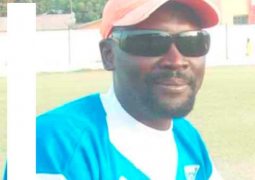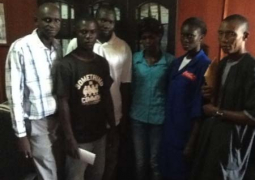The Chairman of the Gambia Medical and Dental Board has said that the sub- Saharan Africa is the worst affected region in the world, carrying 24% of the global disease burden with only 3% of the global health work force.
Dr. Adama A. Sallah made this statement last Wednesday when he presented a paper on "Human Resource for Health Crisis," at the School of Nursing campus during the student's scientific forum, organised by (UniGaMSA) the University of the Gambia Medical Student's Association.
Describing the situation as a calamity, Dr. Sallah noted that "this calamity could only be addressed through international understanding, commitment, joint effort and innovative ideas."
He maintained that 57 countries currently have a critical shortage of Human Resources for Health (HRH), which he noted, is equivalent to a global deficit of 2.4million doctors, nurses and midwives.
Dr. Sallah said the proportional shortage is greatest in the sub-Saharan Africa, noting that in 2006 WHO had identified the threshold in workforce density which is very unlikely to achieve high coverage of essential interventions, including those necessary to meet the health-related MDGs.
Commenting on the issue of retaining an effective, responsive and equitably distributed health workforce, Dr. Sallah said retaining skilled health workers, particularly newly trained staff are critical for the effective delivery of quality health services.
"The concentration of the health workforce in urban areas or capital cities at the expense of the rural and hard-to-reach areas does not help countries to achieve the health?related MDGs," he stated. He said special attention has to be paid to attract and retain the health workforce in those areas, adding that effective deployment of the health workforce can also be addressed by reviewing the way health infrastructures are being planned and sited.
According to Dr. Sallah, another factor is patients' security and workplace safety, asserting that effective and equitable deployment of a scarce health workforce is critical to development.
Director of Higher Education at the Ministry of Higher Education, Research, Science and Technology, Momodou Katim Touray, in his speech said the role of his Ministry is to encourage and support students and lecturers of the UTG to partake in research activities.
Mr. Touray said research is very critical and his Ministry is poised to create a critical mass of young doctors who will contribute immensely in the improvement of the health sectors.
According to Director Touray, researchers are constrained by inadequate resources, lack of confidence to researchers, due to ignorance and conservatism, ineffective time management of researchers among others. Mr. Touray said benefits that can be derived from research related activities include building a culture of research among students, augmenting the University's research profile and maximising external research funding. He finally called on the students to use the right approach, noting that information/data and legislative compliance-research should be guided by a legislature framework research policy.
During the forum scientific papers were presented by five former members of the UniGaMSA now doctors, namely Dr. Gibril Ndow, Dr. Etta Ayum, Dr. Modou Jobe, Dr. Bully Camara and Dr. Aminata Y. Sallah.
Another four serving members of the association who presented their scientific papers included Pa Saidou Chaw, Yorro Bah, Kalipha K. Kassama and Emeka Baldeh.
All the presenters were presented with a certificate of participation. Ousman Jarjue, the President of the association delivered the welcoming speech.



